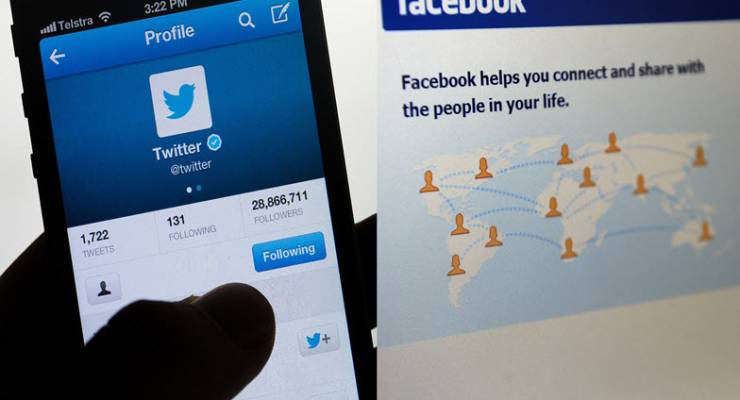
Should you trust Facebook? If you’re on it, you already do. Its faceless tentacles are fully embedded in your movements, prejudices and purchasing patterns. It knows more about your network of family and friends than any human does. You’ve given it enough information to clone you, voluntarily and without reading its terms of use.
That aspect of the evolution of privacy is done, along with the hope of ever again doing something embarrassing at the pub and it not being recorded on someone’s phone.
The interesting thing isn’t how rapidly and cheerfully we’ve surrendering the ownership of our lives to tech companies, but the almost complete absence now of any cautionary voices. I was particularly taken by a chirpy media release last week from the Office of Australia’s eSafety Commissioner, the regulator whose job it is to protect us from the evils of cyberspace.
The office announced that it has signed up to a pilot program with Facebook targeting revenge porn and other misuse of “intimate images” online. It’s an obviously worthy goal to try to stem the flow of image-based abuse on Facebook’s platforms including Instagram and Messenger, and the office is “proud to partner with Facebook on this important initiative”.
The Commissioner, Julie Inman Grant, goes on: “This partnership gives Australians a unique opportunity to proactively inoculate themselves from future image-based abuse by coming to our portal and reporting tool.” The US, UK and Canada are also participating.
Sounds good. Until you get to the end of the media release:
“Adult Australians concerned that an intimate image may be shared online can complete an online form on the eSafety Commissioner’s official website. Users will be asked to send the imagery to themselves on Messenger while the eSafety Commissioner’s office notifies Facebook.”
Facebook will then “use image matching technology to prevent any instances of the image being uploaded or shared online”.
So, this is how it works. Say your ex has nude images of you on his phone, and you’re worried he’ll post them because he’s a pig. The eSafety Commissioner is inviting you to fill in its form and upload the nude images yourself on Messenger. Facebook will then pick them up automatically via the notification it receives from the Commissioner, and run them through its image-matching software. That will detect any identical or similar images and take them down. Hey presto, you are protected. Your ex will be stopped at the gate.
Pause for a second there. It would be great to stop revenge porn before it happens. And, legally, there’s no problem with Facebook having your pictures if it got them from you.
But Facebook is asking you to send it your own nudes. And the eSafety Commissioner is encouraging you to do so. Neither of them is saying what Facebook will do with the images apart from using them for matching purposes. Nor do they touch on the extreme possibilities that technology enables.
Apart from which, ick. Here, Facebook, have a picture of my naked body. Run your software over my skin, marking out all the bits so you can trawl the internet and find every other image out there which might be me.
I don’t think we need to imagine in particularly dystopian terms to understand where this is pointing. Are we really already at the point where the most sensible, in fact only, tool available for combating revenge porn is to encourage Facebook to create a private database of our naked selves?
If you’re unconcerned by Facebook’s corporate morality and are comfortable that it would never misuse your nude images, do you have no concern about its potential for being hacked? Bearing in mind that these are not just flat pictures; they will co-exist with metadata that would enable anyone who’s sharp enough to hack Facebook to do the same thing Facebook says it will do. Just perhaps not for the same benign purpose.
I guess I’m missing something, since there’s been absolutely no outcry about all this. Still, I feel a bit sick.








According to The Register, which has covered this story in a bit of detail, (https://www.theregister.co.uk/2017/11/10/facebook_nude_photos_explained/) the photos aren’t only examined by their software: a “specially trained” person has to make sure they’re legitimate too…
What a ludicrous idea; so photoshop can’t get around that software obstacle?
There has never been any form of human endeavour that has not eventually required regulation.
Somehow the tech billionaires keep getting away with the notion that they should not be regulated because their products represent only positivity for mankind.
Our concerned defensive response is to produce more studies identifying the increasing social cost of the negatives, but still no sign from any government that they will try and regulate.
I am sure with international threats of regulation and major fines, Mr Z, instead of smirking, could quickly find appropriate editing algorithmic solutions. He just doesn’t want to spend the money to do so.
This reminds me of that insight from the advertising world – if you are offered something for free then you are the product they are selling.
“I’m a megacorp, trust me!”. Almost as dumb as thinking that lawyers are not blood sucking abominations.
It’s actually possible for a human being to exist without Facebook in their life.
And please name the three people on planet Earth who naively believe their nude photos will never be seen by anyone apart from spouse/partner/whoever.